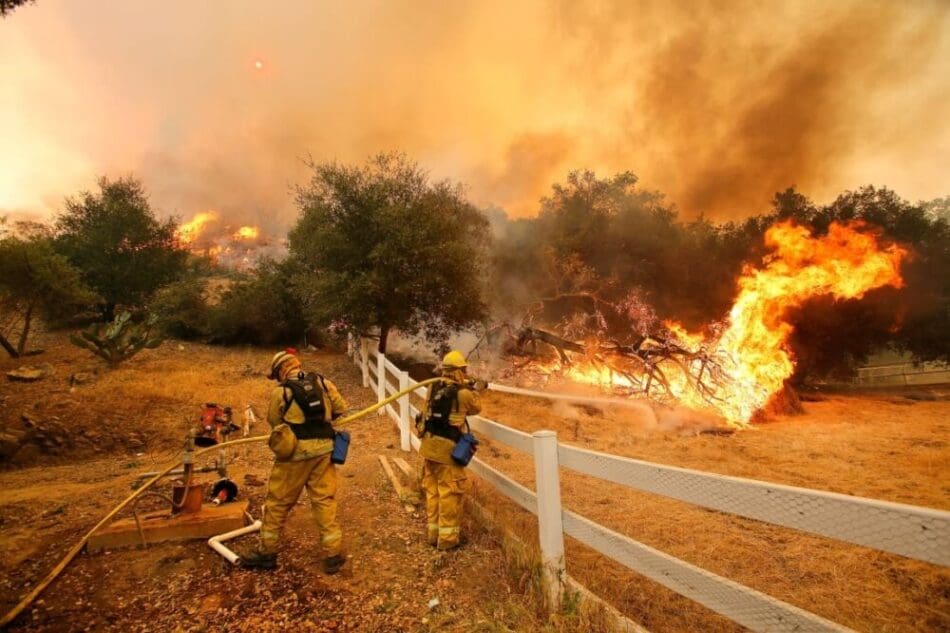The link between climate change and mental health has become increasingly apparent, with more than one in five Californians affected by climate events reporting negative impacts on their mental well-being. This is particularly pronounced among young, white women and those who have experienced property damage. The 2021 California Health Interview Survey (CHIS) sheds light on these issues, emphasizing the need to understand risk and protective factors associated with climate-induced mental health challenges.
Key Findings from the 2021 California Health Interview Survey
The study published in journal PLOS Climate utilized data from the 2021 CHIS, which introduced questions about exposure to extreme weather events and the subsequent mental health effects. The analysis involved a cross-sectional, representative study using logistic regression models to identify associations between individual characteristics, neighborhood social cohesion, and mental health outcomes following climate events.
Demographics and Vulnerability
Out of 12,955 respondents who reported being affected by climate events, 22.8% experienced negative mental health impacts. The analysis revealed that certain demographics were more vulnerable:
- Young Adults: Younger individuals were more likely to report mental health issues.
- White Individuals: White respondents showed a higher prevalence of adverse mental health effects.
- Women: Females were significantly more affected than males.
- College-Educated Individuals: Surprisingly, those with higher education levels reported more negative impacts.
- Rural Residents: People living in rural areas were more susceptible to mental health issues following climate events.
A particularly striking finding was the high likelihood of negative mental health outcomes among those who had experienced property damage due to climate events. These individuals were nearly four times more likely to report adverse mental health effects.
Implications for Public Health and Policy
Climate change is recognized as a pivotal public health crisis of the 21st century, directly and indirectly affecting mental health. Direct exposure to extreme weather events such as hurricanes, wildfires, and floods has been linked to heightened anxiety, depression, and post-traumatic stress disorder. Chronic climate phenomena like sea-level rise and drought also contribute to psychological distress and increased suicide risk.
Indirectly, climate change threatens livelihoods, leading to economic loss, displacement, and migration, which profoundly impacts mental well-being. The mental health effects of climate change are exacerbated by existing disparities in healthcare access along racial, ethnic, sex, and socioeconomic lines. Low-income and racially/ethnically minoritized groups, despite contributing the least to greenhouse gas emissions, face the greatest health risks.
The Role of Community and Social Cohesion
Previous research often focused on single acute climate disasters or required complex data linkages to infer causal effects. This study, however, stands out by examining both acute and chronic climate impacts, capturing personal experiences like property damage, and considering community factors such as social cohesion. Social cohesion and trust within a community can buffer distress and support collective psychosocial resilience.
Future Directions
The findings underscore the need for targeted prevention and outreach interventions to build resilience among vulnerable subgroups. Future research should focus on developing strategies to enhance individual and community-level resilience, particularly in high-risk demographics identified by this study.
As climate change continues to intensify, understanding and mitigating its mental health impacts will be crucial for public health. Policymakers and healthcare providers must prioritize mental health support and resilience-building measures to protect those most vulnerable to the psychological effects of climate events.
The study provides critical insights into the mental health consequences of climate change, highlighting significant demographic vulnerabilities and the protective role of social cohesion. Addressing these issues through targeted interventions can help build a more resilient society in the face of ongoing climate challenges.
Journal Reference:
Zhao D, Epel E, Allen E, Hwong AR (2024) ‘Exposure to climate events and mental health: Risk and protective factors from the California Health Interview Survey’. PLOS Climate 3(8): e0000387. DOI: 10.1371/journal.pclm.0000387
Article Source:
PLOS Climate
Featured image: Firefighters from Stockton, Calif., put out flames off of Hidden Valley Rd. while fighting a wildfire, Friday, May 3, 2013 in Hidden Valley, Calif. Credit: Daria Devyatkina | CC-BY 2.0




